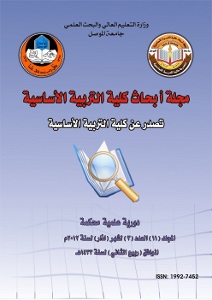The Relationship between the Development of Civil Society Institutions and the Democratic Transformation in the Arab Homeland"Egypt as a Study Case"
Abstract
. . : . :- . . . . The research tackles the nature of the relationship between the state and civil society, some problems facing the work of civil society institutions; and the most important mechanisms of activating their role in the democratic transformation. Egypt has been tackled as a study case.The research hypothesizes that there is a close relationship between the civil society institutions and democracy, and between the development of these institutions and the democratic transformation and promoting it in any of these societies including our Arab ones.The research has come to the following conclusions:1. The relation between the state, or the Arabic governing regimes, and the institutions of the civil society is based on the dominance on the part of these regimes at the expense of those institutions, and not on the basis of separation and cooperation required to be achieved for a better performance by the two parties.2. The Arabic civil society institutions currently work in a negative atmosphere which does not help them to activate their role and work in a positive manner.3. The civil society institutions have a significant role represented by reforming the conditions of their societies and saving them from the bad state in which they live.Talking about any real and serious essential reformation in Egypt has to be necessarily based on reforming state offices and institutions, particularly the administrative, bureaucratic ones which are responsible for excuting public policies. The latter seem good on paper, but they are implemented using bad techniques which makes them unable to achieve the desired goals.
